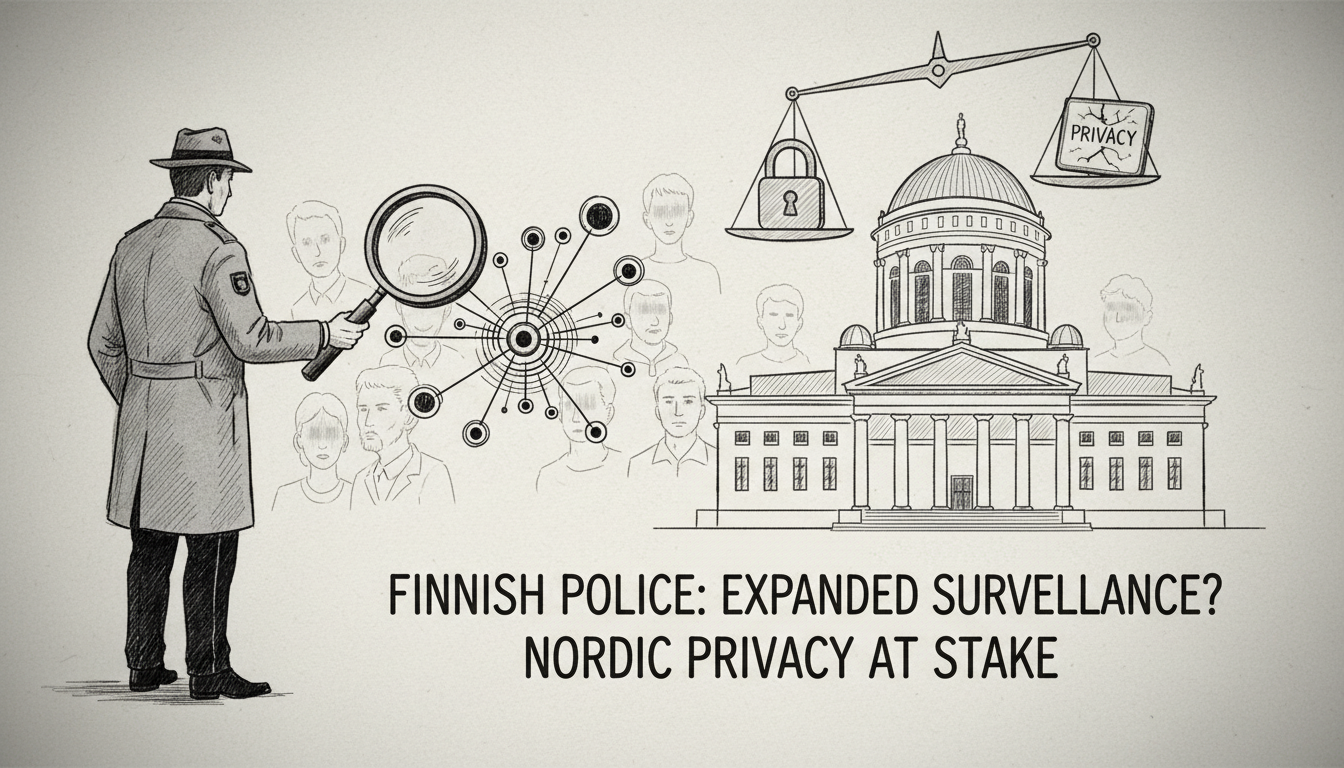Finland's government is advancing controversial legislation that would grant police unprecedented surveillance authority over ordinary citizens. A Justice Ministry working group proposes constitutional amendments allowing police and security intelligence to monitor private communications without requiring criminal suspicion. Parliament faces a pivotal vote on these measures in the coming weeks, with implications for fundamental privacy rights across the Nordic region.
The proposed changes would represent Finland's most significant security policy shift in decades. Police could access digital communications, track locations, and monitor financial transactions without demonstrating probable cause. This expansion of state surveillance power challenges traditional Nordic legal protections that have long balanced security needs with individual liberties.
Government officials argue these tools are necessary for preventing serious crimes and addressing modern security threats. They point to evolving challenges in cybersecurity and organized crime that require updated investigative methods. The Interior Ministry contends current legislation hampers effective crime prevention in the digital age.
Opposition parties and civil liberties organizations express deep concern about the potential for abuse. They question whether mass surveillance without suspicion violates Finland's constitutional protections and European human rights standards. Legal experts note the proposal may conflict with EU data protection directives and European Court of Human Rights precedents.
Finnish political parties are deeply divided along traditional security-versus-liberty lines. The governing coalition appears united in supporting the measures, while opposition groups demand stronger judicial oversight and narrower application. The Social Democratic Party and Left Alliance have already signaled their opposition, citing privacy concerns.
This debate reflects broader tensions across European nations grappling with digital surveillance powers. Finland's approach will likely influence similar discussions in Sweden and Norway, where parallel security reviews are underway. The outcome could set important precedents for how democratic societies balance security and privacy in the digital era.
Parliament's Constitutional Law Committee must first evaluate whether the proposed changes align with Finland's basic rights protections. Their assessment will determine the legislation's viability and potential amendments. The committee's recommendation typically carries substantial weight in final parliamentary decisions.
International observers are closely watching Finland's process, as it represents a test case for European digital rights standards. The European Commission may eventually weigh in on compatibility with EU privacy regulations, particularly the General Data Protection Regulation framework.
What practical impact would these surveillance powers have on daily Finnish life? Police could potentially monitor any citizen's digital footprint without demonstrating reasonable suspicion of criminal activity. This represents a fundamental shift from current requirements that tie surveillance to specific investigations.
The legislation's passage would position Finland alongside more surveillance-oriented EU members rather than its traditionally privacy-focused Nordic neighbors. This realignment could reshape Finland's international reputation for balancing security and civil liberties effectively.

